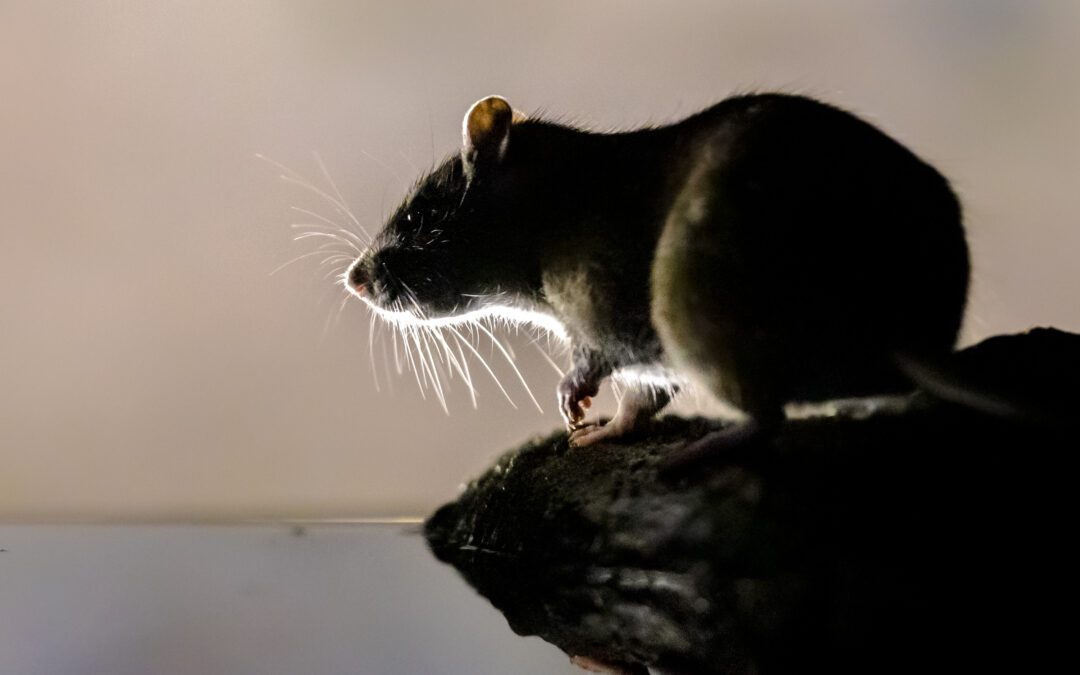Recently, the chief of a large U.S. city police department went before her city council to describe the “deplorable” conditions of her police headquarters building. The facility, built in 1968, was experiencing an infestation of cockroaches, rats, and other physical plant issues, making it nearly unworkable for its personnel.
A huge issue was the rodent problem. The chief told city officials,” The rats are eating our marijuana—they’re all high.”
While many people would find this story amusing, department personnel didn’t see the humor – or at least they wouldn’t admit to it.
Working in an old, broken-down facility infested with pests would affect morale, recruiting, workflow efficiency, and many other aspects of an organization’s routine day-to-day operations.
No one would want to work in that environment. If it’s a law enforcement facility, the consequences of evidence lost to those pests could easily extend beyond the walls of the building.
We’re talking about evidence integrity, which affects criminal case integrity, which makes those high rats a lot less funny.
In this piece, we will focus on the example above and provide a sure-fire solution to that problem.
Proper Evidence Preservation and Storage Environments
Criminal case evidence must be stored in varying types of environments and packaging depending on its type – this is especially important for long-term evidence storage.
The most basic requirement for all types of evidence is a secure environment that ensures chain of custody is maintained and allows for its documentation. Most of us think of that environment as separating unauthorized humans from evidence. But, as the above situation shows, it’s more than that.
A significant factor affecting proper evidence storage is the physical condition of the holding facility.
Police Building Age
It’s safe to say that most law enforcement facilities in the United States are over twenty years old. The building mentioned in this piece is fifty-five years of age.
Buildings degrade over time, even with upkeep. A law enforcement agency located in a metropolitan area is likely susceptible to rodents taking up residence within the facility.
Rats and Mice and Marijuana
The effects of marijuana on rats and mice have been studied for years. And simply put, they like it. They like it a lot. It can serve as a food source, and after they sample it, they want more. The more they eat, the more they want.
Imagine an evidence room with a few mice around.
Now imagine one in which the marijuana on hand has become a food source for them.
Last but not least, imagine the state of evidence, maybe anything stored in paper or plastic bags, just a few days after that marijuana, that evidence, (that’s by law supposed to be secure and preserved) has become the go-to munchies for the rodents in the facility.
Remember, the more they eat, the more they want.
Not pretty, huh?
Evidence Integrity
Maintaining the integrity of evidence is what evidence management – including storage – is all about. Rodents can quickly destroy or damage evidence, making it inadmissible (or impossible to introduce if eaten) in court
Besides the potential damage to the prosecution of criminal cases, that situation in the evidence room will go public and can tarnish the agency’s reputation.
Prevention or Solution
There is a solution to that problem or, even better, a process that law enforcement can take advantage of to prevent the loss of their evidence and maintain the agency’s reputation.
The private sector provides the solution and prevention process.
Private providers who specialize in long-term evidence storage and preservation services can prevent or solve most evidence storage problems that police agencies face today; they certainly could provide the solution for the department in the example and prevent rodents from compromising evidence.
How?
That evidence would be stored off-site in a clean, maintained, professionally staffed, and operated facility designed specifically for long-term evidence storage.
Conclusion
While an infestation of pests eating evidence may seem funny to some, it can be quite detrimental to the agency involved. the operations of the criminal justice system, and the people within it. Law enforcement agencies are tasked with adhering to rules, regulations, laws, and best practices of evidence management and do their best in that regard. Many of those procedures are complicated, and complying with them in a facility that no longer provides the basic physical necessities required to accomplish them is an issue all across the country.
The private sector has recognized the challenges regarding proper evidence storage and management. It operates facilities designed and staffed specifically for those purposes. However, only a few of these providers exist across the country.
Police agencies in Illinois, Wisconsin, and Indiana are close to one of these private companies and their state-of-the-art facility: Fortress Plus Solutions (FPS), which is located in the greater Chicagoland area.
Suppose your agency is losing the rat race in your facility. In that case, FPS can provide a solution or, even better, a cost-effective process to prevent a bunch of lazy, insatiable rats from taking up residence in your evidence room.
FORTRESS PLUS SOLUTIONS
Fortress Plus Solutions provides safe, secure, documented transportation, handling, storage, and preservation of evidence and property for the long term. If your items require special storage conditions – we provide that. In addition, we offer evidence room audits to help law enforcement maintain best practices and accurate and up-to-date inventory records. In our blog, we post informative articles about privatized long-term storage and the auditing process. To learn more about our services, click here.

